
DragonImages/iStock/Getty Images
Acne is one of the most common skin conditions. It's a result of dead skin and excess oil creating an obstruction within the openings of your hair follicles. Greasy or oily skin care products can exacerbate breakouts, since one or more of the ingredients may clog the pores and contribute to the obstructions. However, there are products available that don't affect the skin in this way. Products containing petrolatum are less likely than others to cause acne.
Classification
Petrolatum is considered a hydrocarbon, which is a compound containing hydrogen and carbon, advises CosmeticInfo.org. Often referred to as petroleum jelly or paraffin jelly, this ingredient is commonly found in skin care products, such as moisturizers, body lotions, sunscreens, shaving creams, aftershaves, cleansers and cosmetics. The reason for its use is it slows down the loss of moisture within your skin, helping to prevent dryness and chapping by creating a thin film along the epidermis.
Noncomedogenic
Though petrolatum leaves a film on the skin, it doesn't actually penetrate down into your follicles, notes Bioskincare. This means that products containing petrolatum are typically considered noncomedogenic, or they're not known to cause comedones. As soon as a product enters the pores, it can lead to an obstruction that triggers an inflammatory response, resulting in acne.
Comedones
The Mayo Clinic explains that comedones are blackheads or whiteheads that develop as a result of clogged hair follicles. Blackheads are open acne lesions, while whiteheads are closed ones. Both types of blemishes have soft plugs near the surface of the skin. They're the most minor form of acne.
Other Ingredients
This doesn't mean that all products containing petrolatum are noncomedogenic. Other ingredients in the given skin care product may lead to clogged pores. Some of the more common include lanolin and its derivatives, cocoa butter, coconut oil, sodium lauryl sulfate, sodium laureth sulfate, sulfated oils, cottonseed oil, isocetyl stearate, isopropyl isostearate, cetearyl alcohol and oleyl alcohol, to name a few.
Considerations
If you're prone to acne breakouts, consult with your dermatologist to determine which skin care products are best for your type of skin. Medical professionals can suggest moisturizers, cleansers, cosmetics and other skin care products that won't contribute or worsen acne breakouts.
Related Articles

How to Get a Pimple to Go Away Fast
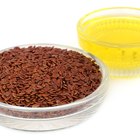
Does Flaxseed Oil Cause Acne?

How to Heal an Inflamed Bikini Area
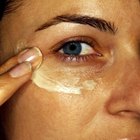
The Best Facial Moisturizer That Won't ...
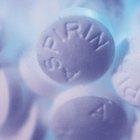
Aspirin Masks for Large Pores

How Does Ultraviolet Light Affect ...

Benzoyl Peroxide-Free Acne Products
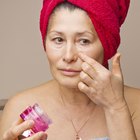
Ingredients in StriVectin SD

How to Get Rid of All the Tiny Embedded ...
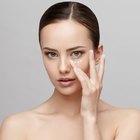
Hydroquinone & Dark Circles

Is Allantoin a Relative of the Lanolin ...

What Are the Ingredients in Proactiv?

What Is the Initial Breakout From ...

Toxicity of Peppermint Oil

How do I Speed Up the Reversal of Face ...
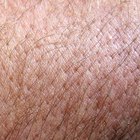
How to Shave Skin Moles

Risks of Facial Fillers

Aloe Vera & Seborrheic Dermatitis

Can Borage Oil Help Acne?

What Is the Meaning of Judgmental?
References
Writer Bio
Based in Minneapolis, Minn., Dana Severson has been writing marketing materials for small-to-mid-sized businesses since 2005. Prior to this, Severson worked as a manager of business development for a marketing company, developing targeted marketing campaigns for Big G, Betty Crocker and Pillsbury, among others.
Photo Credits
DragonImages/iStock/Getty Images